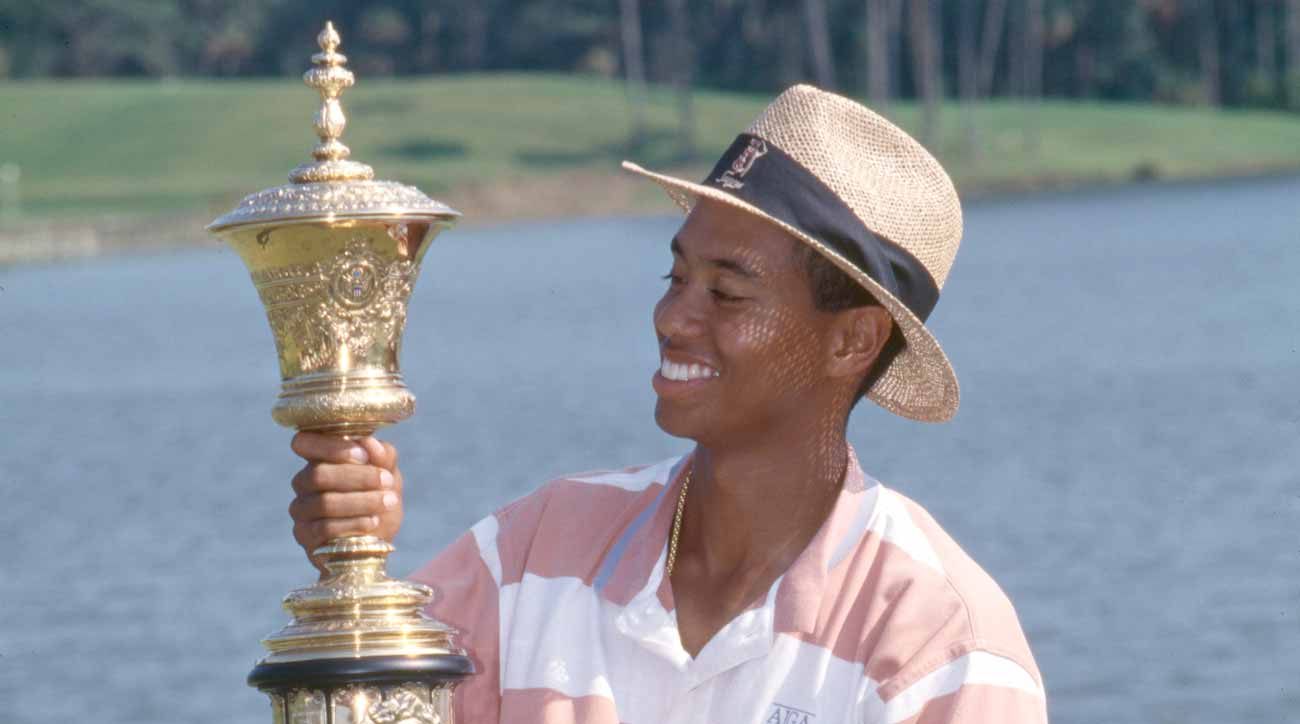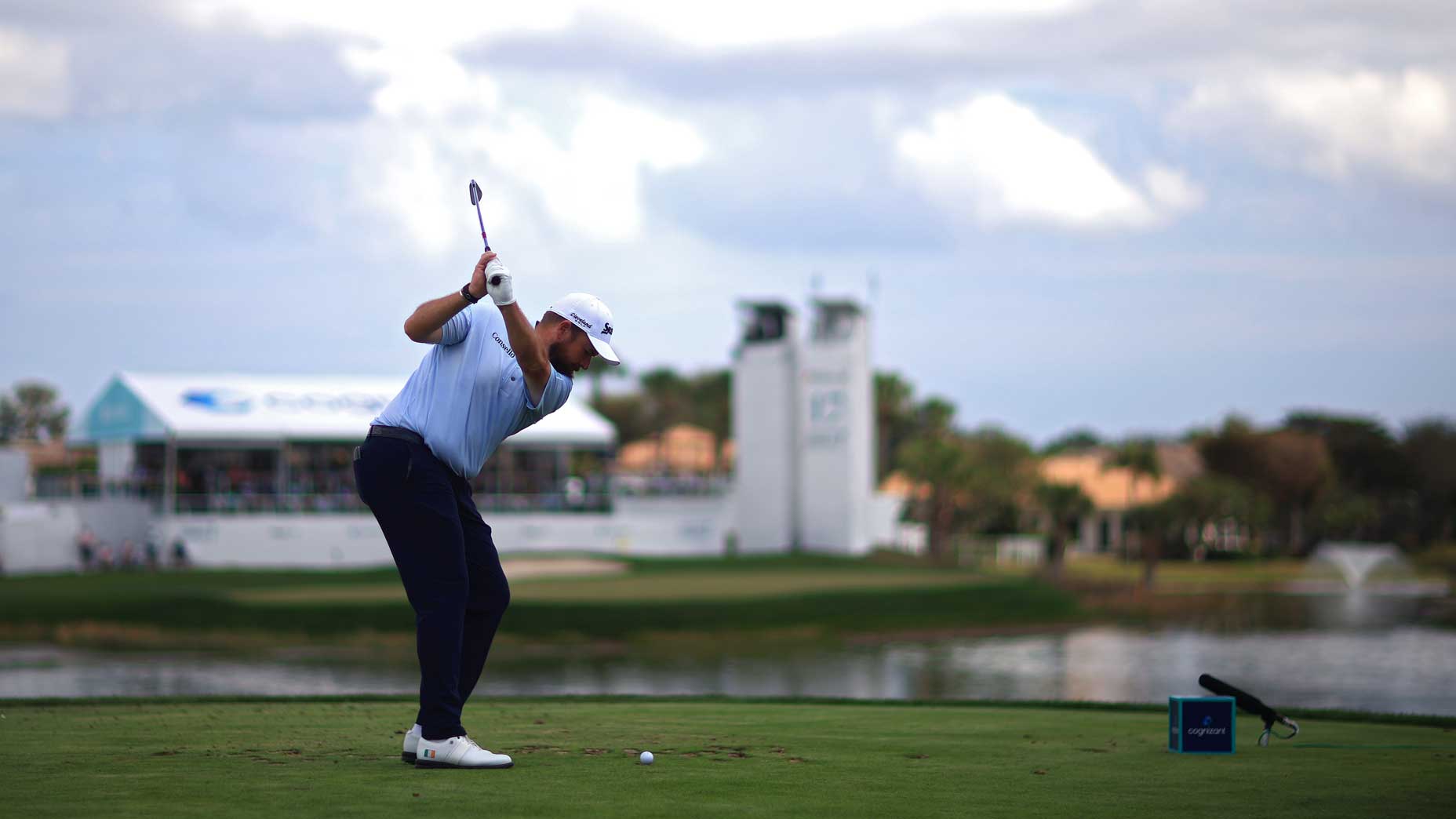 2026 Cognizant Classic money: Total purse, payout breakdown
2026 Cognizant Classic money: Total purse, payout breakdown
Tiger Woods’ girlfriend, restaurant deny allegations in wrongful death suit, implicate automaker
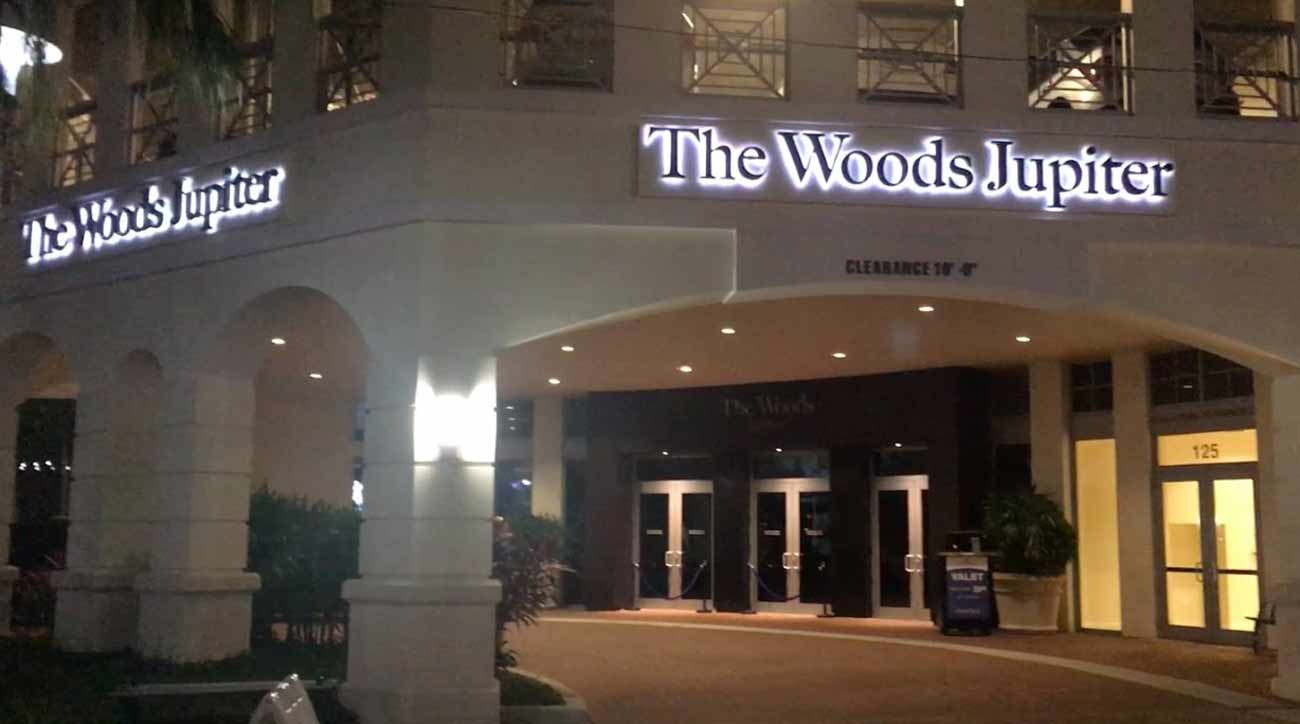
Lawyers representing Tiger Woods’ girlfriend Erica Herman and his South Florida restaurant, The Woods Jupiter, have denied wrongdoing and demanded a jury trial in a wrongful death lawsuit brought against both parties by the family of a former employee who died in a drunk-driving accident after leaving the restaurant last year.
In court documents filed Monday afternoon, the lawyers provide answer and affirmative defense, and also allege that General Motors is liable for the employee’s death because of airbag defects in the 1999 Chevrolet Corvette he was driving.
Nicholas Immesberger, a server at The Woods, died in the single-car accident on Dec. 10. According to court documents, Immesberger, who was 24, had a blood alcohol content level (.256) more than three times the legal limit in Florida. Woods was originally named in the lawsuit by Immesberger’s family, but his name was subsequently dismissed in a re-filing on June 25.
The lawsuit alleges that Immesberger was over-served for hours by employees at Woods’ restaurant before the accident. The complaint also charges that “the employees and management at The Woods continued to serve Immesberger alcohol to the point of intoxication knowing that he had driven to work and had no other way home.”
According to the lawsuit, employees and management “had direct knowledge that Immesberger had a habitual problem with alcohol,” including Woods and Herman who “were drinking with Immesberger at The Woods bar only a few nights before the fatal crash.”
In the Monday rebuttal from Herman and The Woods’ lawyers, the first section is a series of direct answers laid out in response to the allegations made in the original lawsuit and effectively denies all wrongdoing. The response goes on to address the “Wrongful Death Allegations” section of the original suit, providing outright denials or claims that Herman and The Woods were without sufficient knowledge and therefore not at fault.
Lawyers for the defense laid out 15 affirmative defenses which more clearly detail their claim of no wrongdoing. They are summarized here, but laid out in full the document at the bottom of the story.
First Affirmative Defense
Immesberger made a series of decisions the night of Dec. 10 that ultimately led to his death. Those include:
1. Immesberger’s THC level was 13.3 ng/mL, more than five times the reporting limit.
2. Immesberger was not wearing a seatbelt at the time of the crash, which would have prevented his ejection from the vehicle.
3. It was Immesberger’s decision to drive that night despite his blood alcohol level later reading .256, more than three times the legal limit.
4. It was Immesberger’s decision to “carelessly operate” his car at the time of the crash, going 70 mph in a 55 mph zone and driving unsafely.
5. It was Immesberger’s decision to continue working as a bartender despite his knowledge of his own alcoholism.
Second Affirmative Defense
Immesberger’s injuries were the result of his own failure to “exercise reasonable and ordinary care, caution or prudence” to avoid the accident.
Third Affirmative Defense
Immesberger was more than 50 percent at fault for his own injuries (a relevant legal threshold for liability) because he chose to drive despite elevated THC levels.
Fourth and Fifth Affirmative Defenses
Immesberger was more than 50 percent at fault for his own injuries because he chose to drive despite a high blood alcohol level and impairment under the influence of alcohol.
Sixth Affirmative Defense
Immesberger died in part as a result of airbag defects from the 1999 Chevrolet Corvette he was driving. The filing declares that Immesberger was partially ejected from the car because the airbags failed to deploy and shifts blame for Immesberger’s death to General Motors, Chevrolet and relevant employees.
Seventh Affirmative Defense
Immesberger’s death was a result of acts beyond the defendant’s control and partly due to those other parties who supplied him with marijuana and alcohol on the day of the accident.
Eighth Affirmative Defense
Immesberger’s lawyers should have known the airbags were defective and that the Corvette was significant evidence but did nothing to keep the car from being “scrapped or destroyed after the crash occurred.”
Ninth Affirmative Defense
The Corvette in question was registered to James Immesberger (believed to be Nicholas’ grandfather), who did not do anything to prevent the car from being scrapped or destroyed after the crash occurred.
Tenth Affirmative Defense
Immesberger put himself knowingly into the situations that ultimately led to the crash.
11th Affirmative Defense
If the plaintiffs are awarded recovery, that amount should be reduced by the value of any collateral sources paid and/or payable to the plaintiffs.
12th Affirmative Defense
Immesberger and/or other plaintiffs failed to mitigate against the accident and the actions that led to it.
13th Affirmative Defense
The Woods Jupiter was not responsible for serving Immesberger drinks; Immesberger was responsible for taking them without pay from the bar.
14th Affirmative Defense
The plaintiffs’ negligence claim is invalid based on Florida’s law limiting liability involved with a bar’s sale of alcohol to people habitually addicted to alcohol, as Immesberger was.
15th Affirmative Defense
Immesberger’s lawyers failed to tell The Woods to preserve video evidence from the night of the crash in a timely manner, waiting until Feb. 19 to do so.
In addition to the Affirmative Defenses, the filing included a demand for jury trial, demanding judgment against the plaintiff for costs and damages incurred in the process.
The entirety of the filing can be read below.

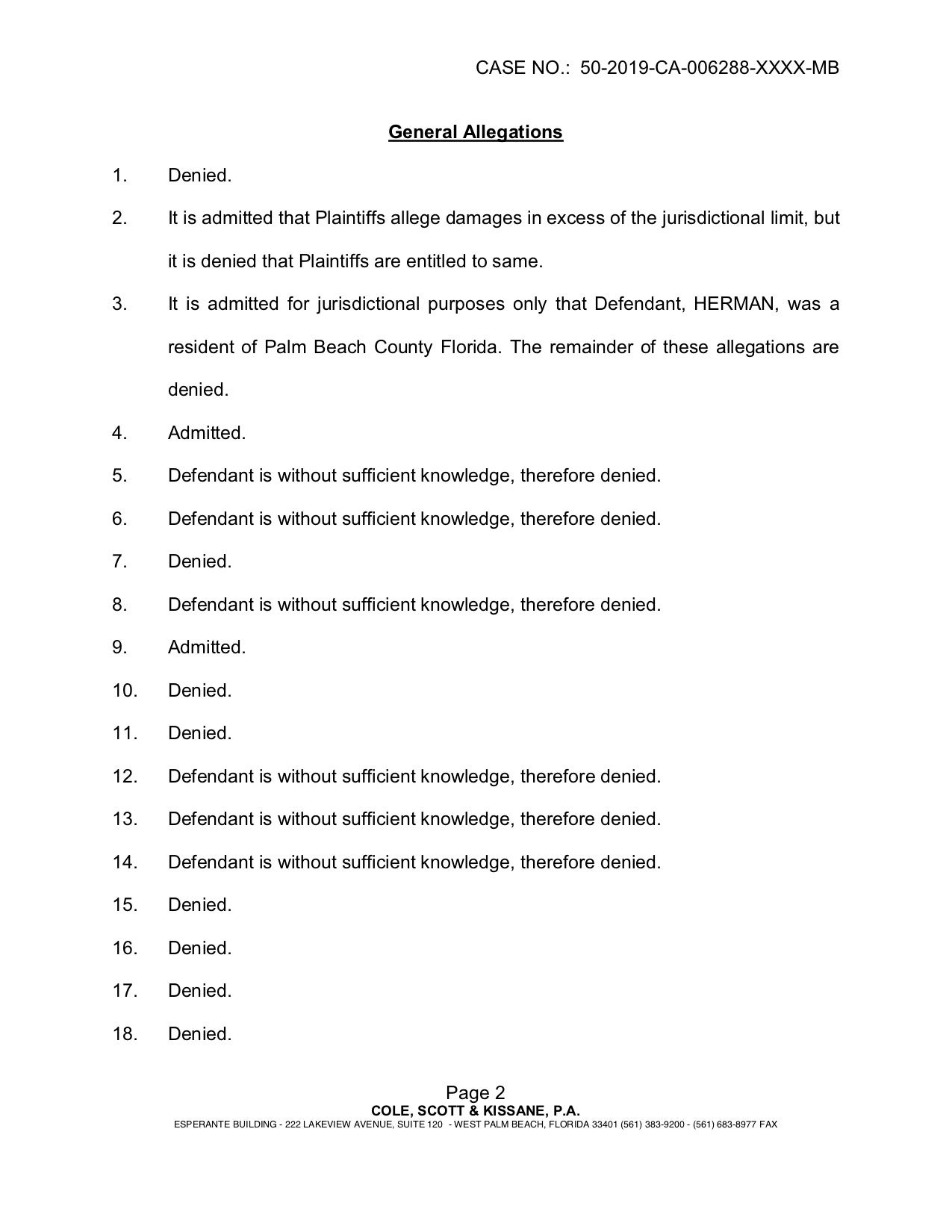

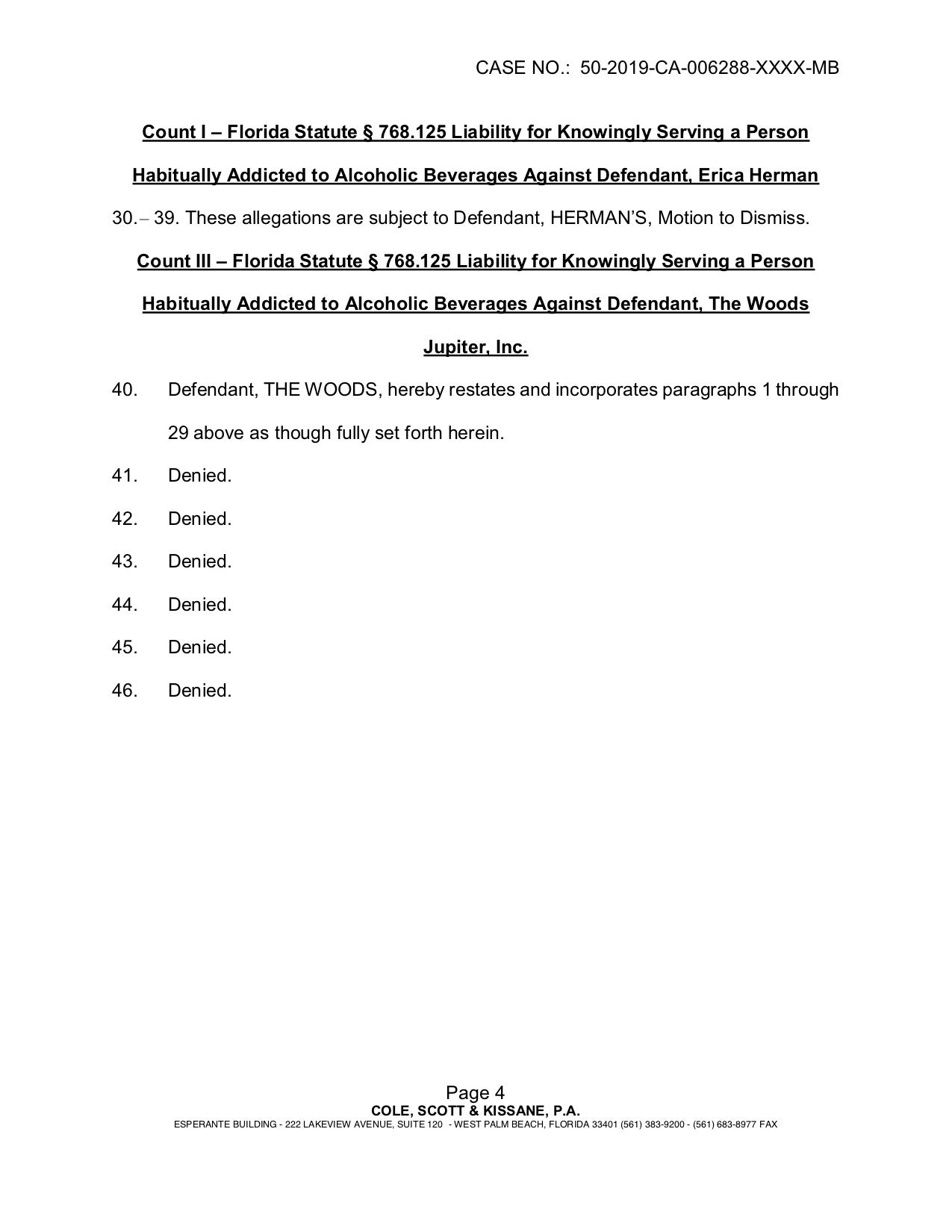
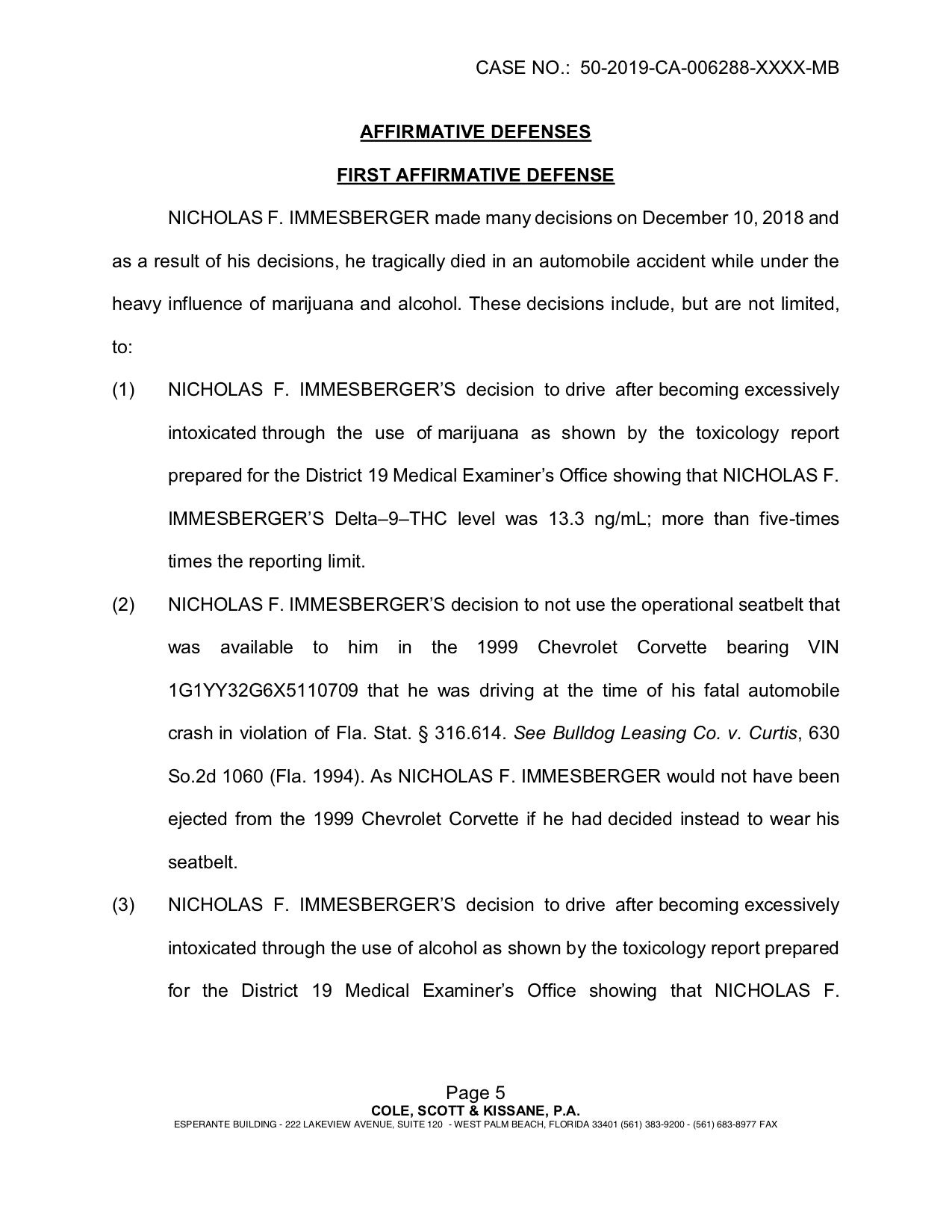
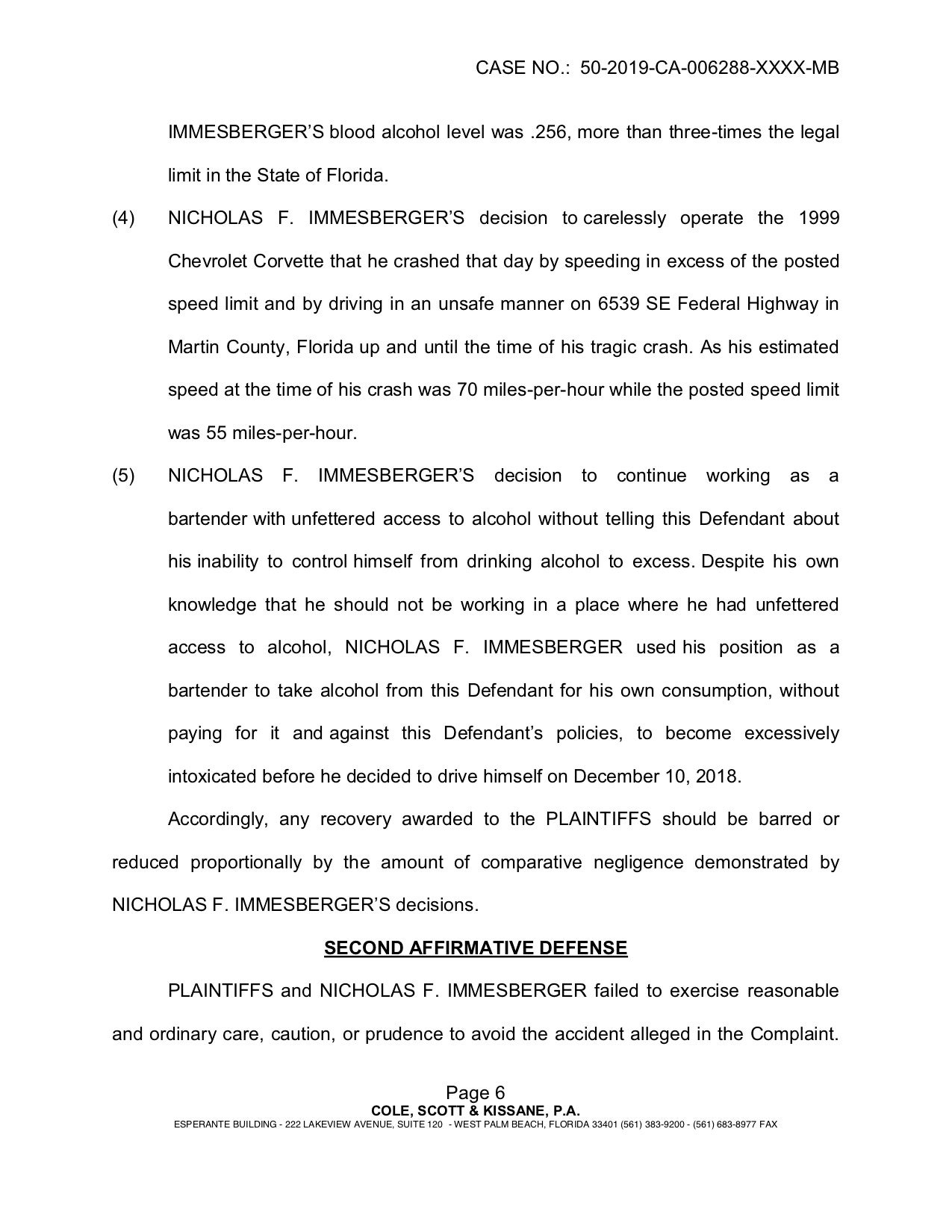
ADVERTISEMENT


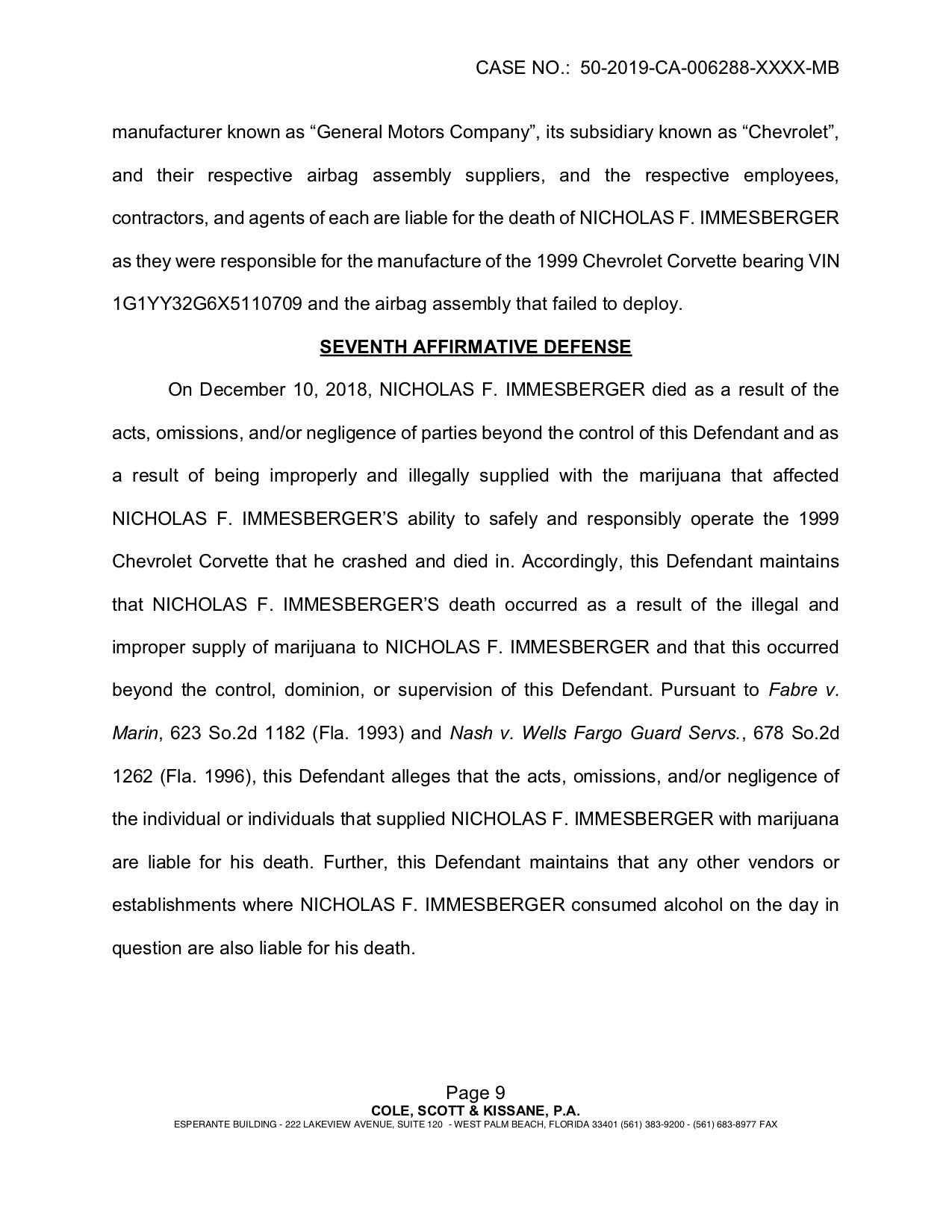
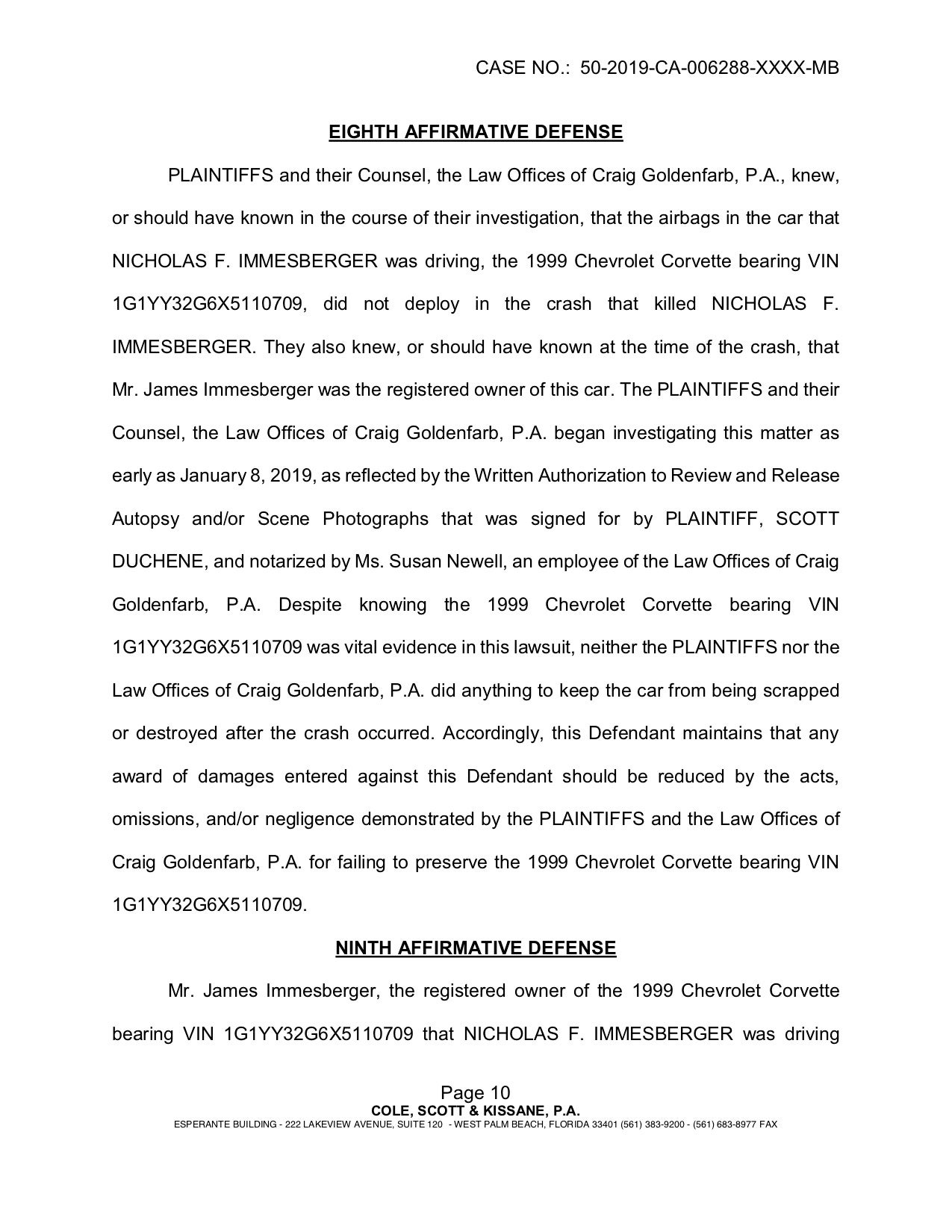
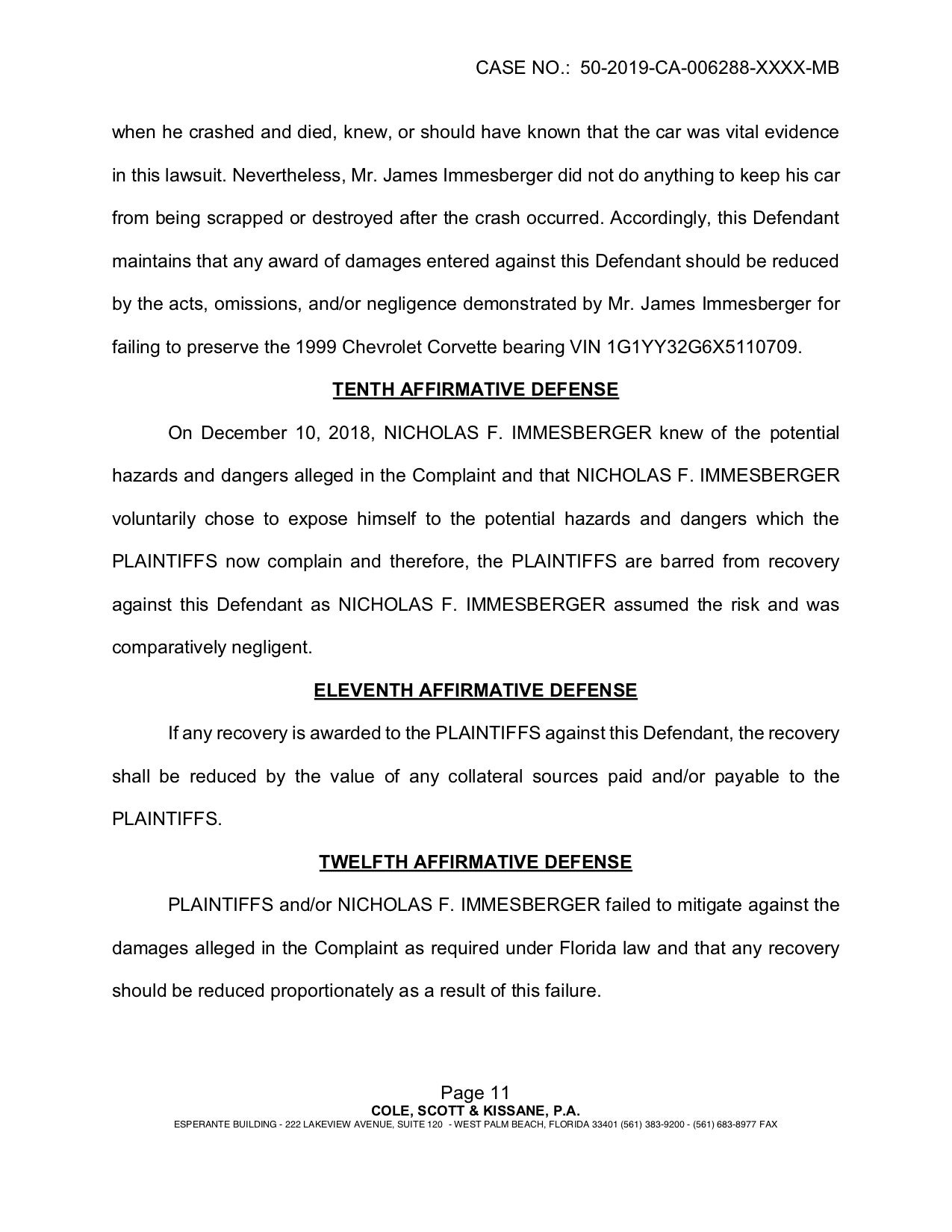
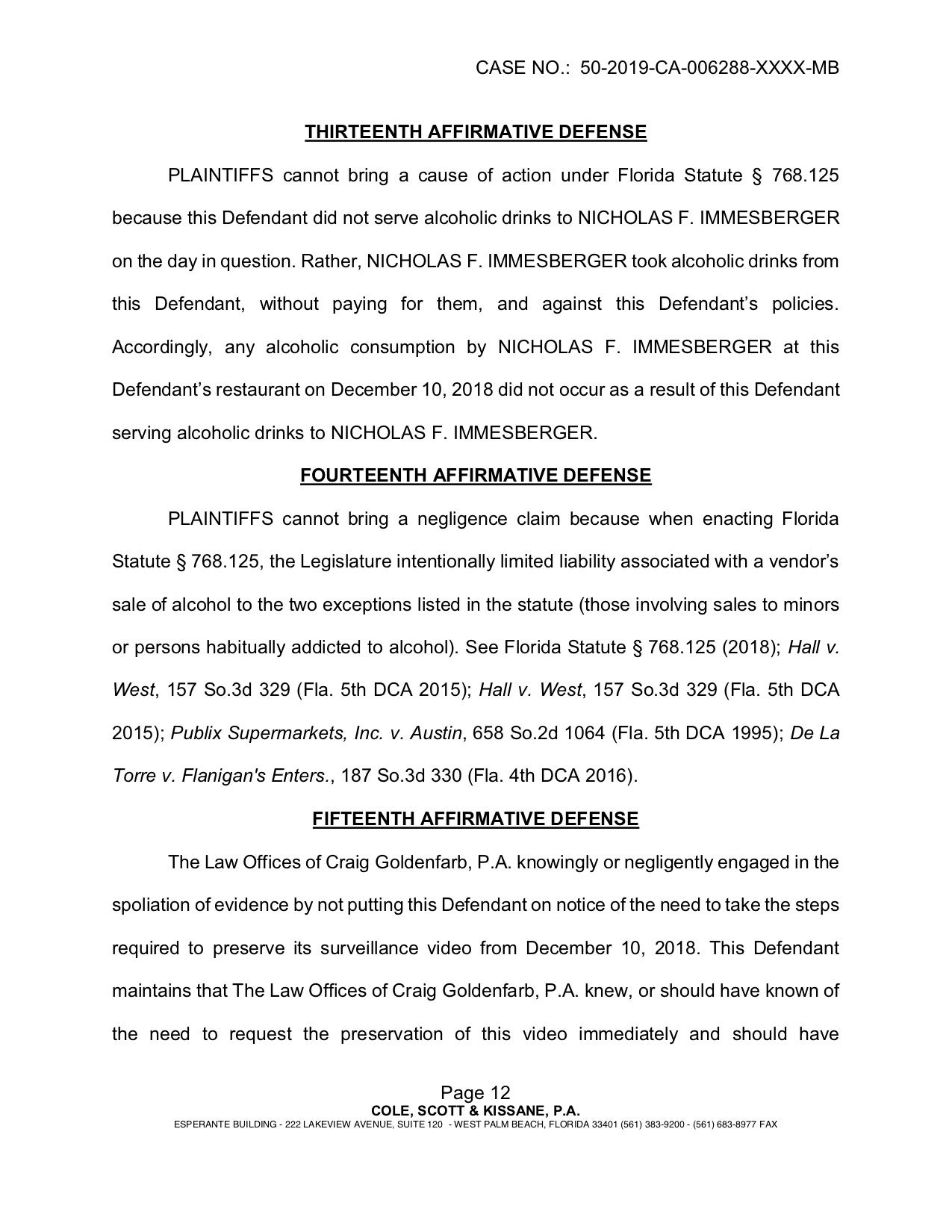
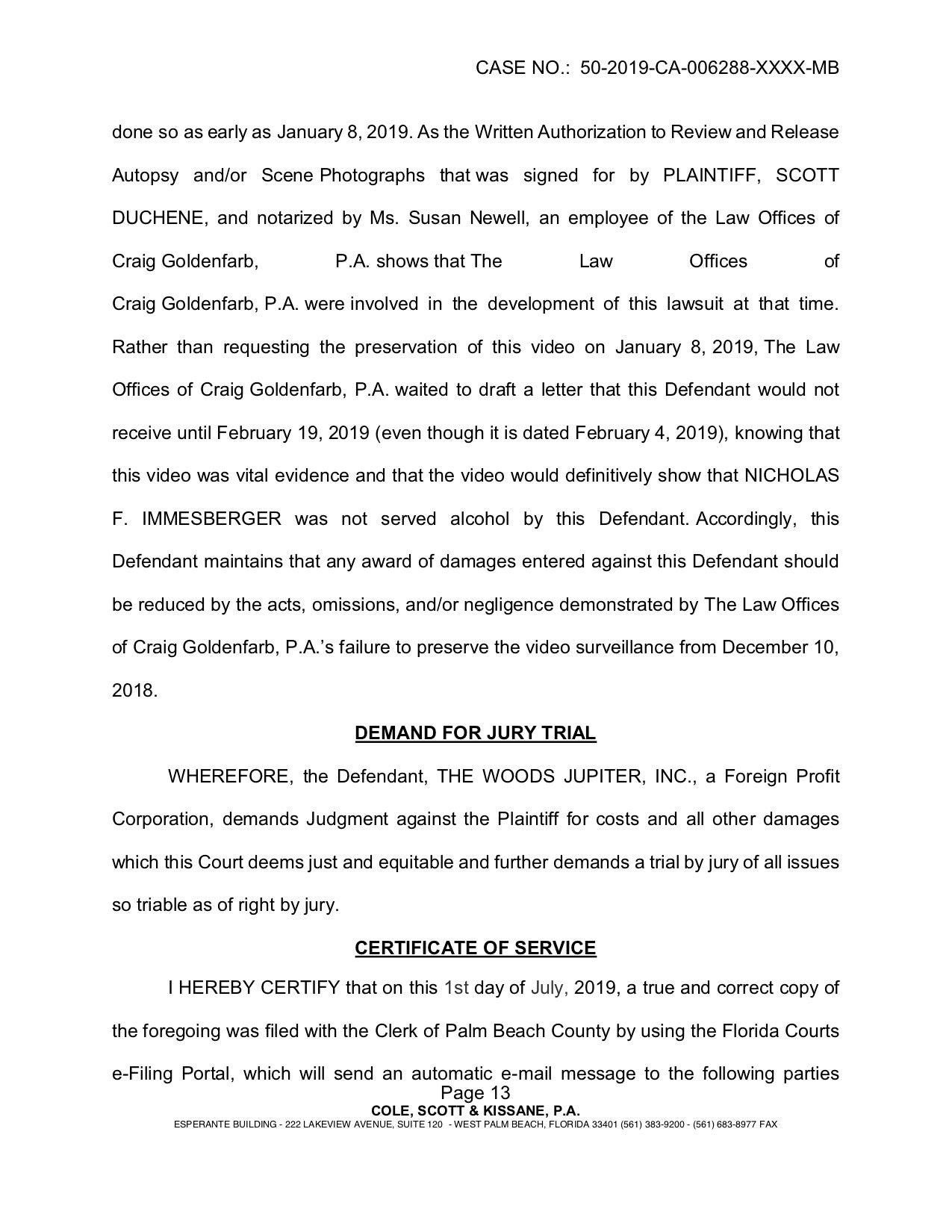
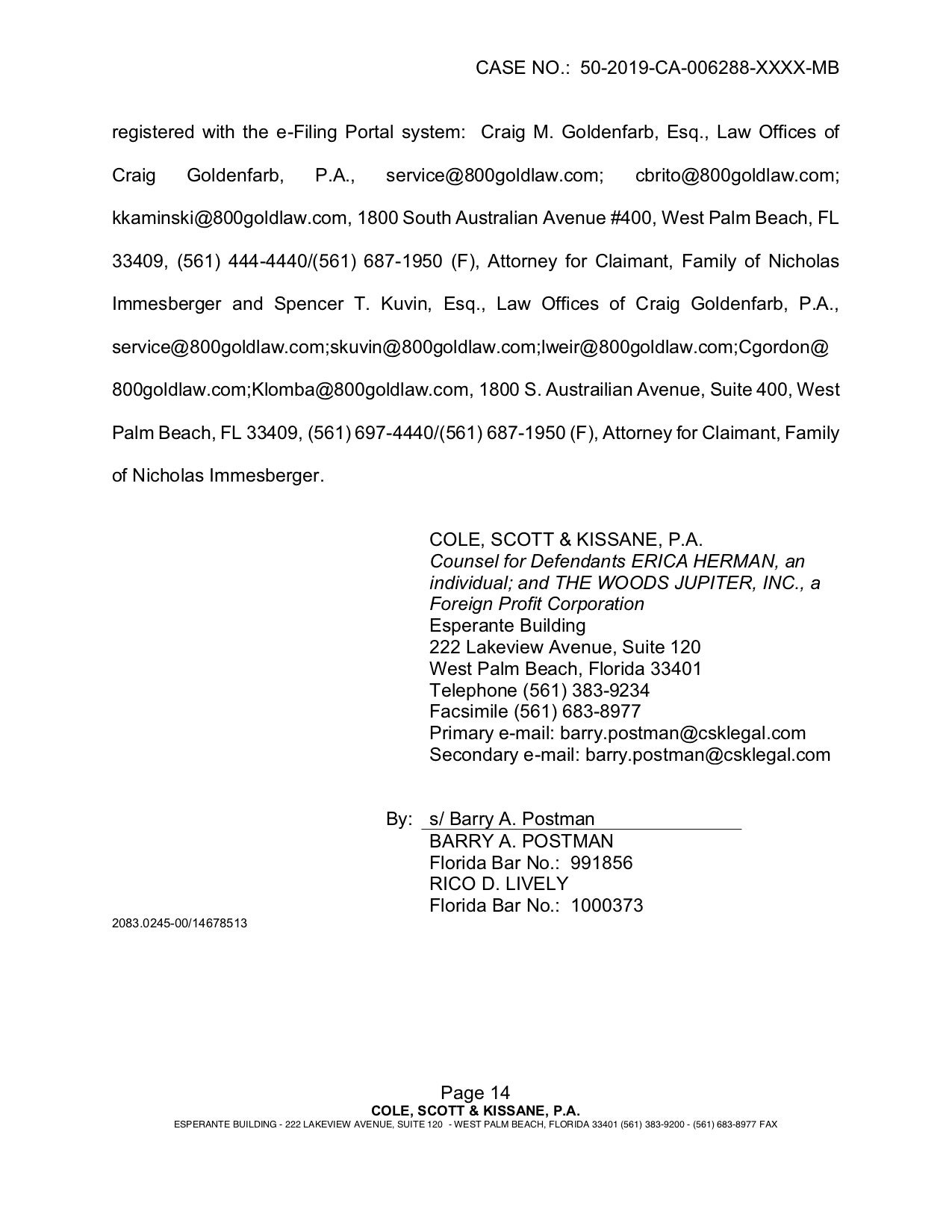
ADVERTISEMENT


